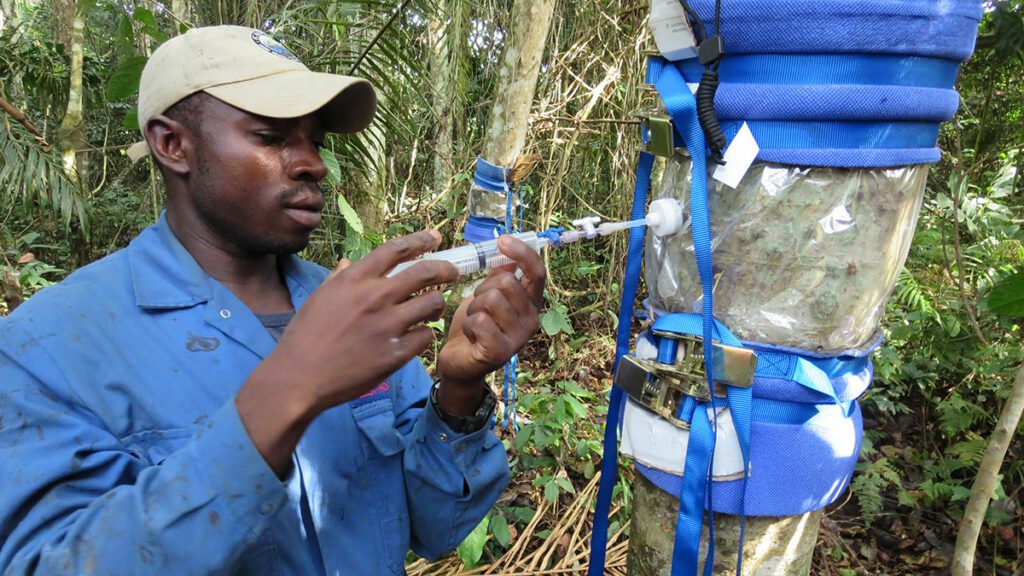Source: Journal of Geophysical Research: Biogeosciences
Soils in tropical forest biomes are the most significant natural sinks of atmospheric methane (CH4). Yet the extent of methane emissions from tropical trees is poorly understood and contributes to the large margin of error in global methane budgets. Particularly in Africa, which generates less than 1% of the world’s research output, field studies in tropical forests are lacking. The world’s second-largest tropical rain forest is in Central Africa’s Congo Basin, and it remains relatively understudied even compared with other tropical biomes.
In addition, a disproportionate number of investigations into methane emissions from tree stems focus on wetland forests. Only one published study—from Panama—looks at tree stem methane emissions from tropical forests with upland soils.
In newly published research, Iddris et al. sought to close these knowledge gaps. Across three study sites in southern and central Cameroon, the researchers measured methane flux in old-growth forest and forest plots converted to cacao agroforestry. All of the sites shared similar upland soil characteristics. The study resulted in the first yearlong measurements of stem and soil methane flux in the Congo Basin.
The study results suggest that upland tropical forests may be weaker methane sinks than previously estimated. On well-drained upland soils, tree stem methane emissions offset a sizable portion of soil methane uptake. The findings were similar across both forested and agroforestry plots. The authors hypothesized that the conversion to cacao agroforestry only minimally disturbed the soil and did not noticeably affect methane flux.
Notably, the authors found that tree stem methane emissions offset up to a quarter of the uptake by forest soils and nearly a third of the methane taken in by cacao soils. “Hot spot” trees, which accounted for only 2% of the measured trees, emitted methane at rates 2 orders of magnitude greater than other trees in the study sites. This discovery indicates that the ecosystem does not cycle methane uniformly. (Journal of Geophysical Research: Biogeosciences, https://doi.org/10.1029/2021JG006312, 2021)
—Aaron Sidder, Science Writer
Citation: Sidder, A. (2021), Exploring methane emissions from Africa’s tropical forests, Eos, 102, https://doi.org/10.1029/2021EO210600. Published on 10 November 2021.
Text © 2021. AGU. CC BY-NC-ND 3.0
Except where otherwise noted, images are subject to copyright. Any reuse without express permission from the copyright owner is prohibited.
Related
Source link : https://eos.org/research-spotlights/exploring-methane-emissions-from-africas-tropical-forests
Author :
Publish date : 2021-11-10 08:00:00
Copyright for syndicated content belongs to the linked Source.
